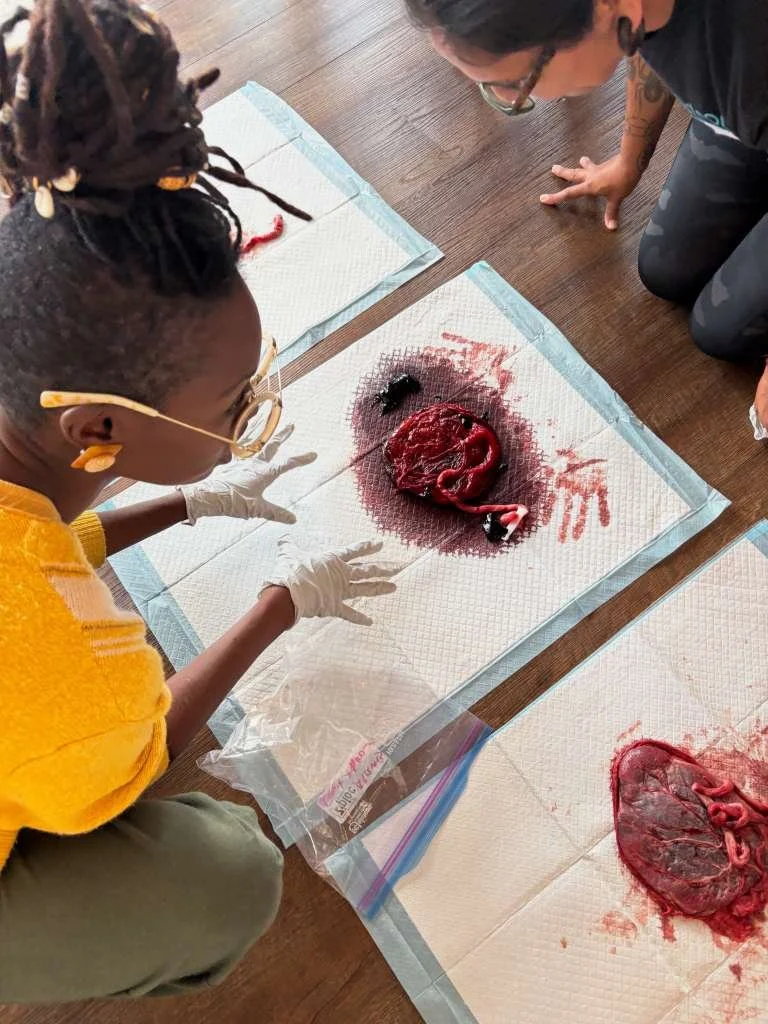
Somatic Birthwork?
Somatic Birthwork is the practice of preparing for birth through the body, the nervous system, and the deep stories we carry within us. It is care that goes beyond the physical process of labor to tend to the whole being — body, spirit, and lineage.
When stress, fear, or old trauma live in the body, birth can feel heavier or more overwhelming. Somatic practices help us notice these patterns and bring the body back into balance. That might look like grounding through touch, slowing the breath, or moving in ways that create space and release tension. These shifts signal safety to the nervous system, allowing the body to soften and welcome labor with more ease.
This work reaches beyond the birthing person. A regulated parent creates a regulated baby. The calm and connection we cultivate together become the first imprints a baby receives in their nervous system. And because birth echoes through generations, this is also where epigenetics comes in: when birth is met with ease instead of fear, the nervous system learns a new story — one that can ripple forward and reshape what is passed down.
Herbal medicine supports this process by grounding, nourishing, and restoring the body. Herbs act as companions in birthwork, offering both practical relief and deeper connection with the earth. They remind us that pregnancy and birth are part of nature’s cycles, and that healing is never separate from the land that holds us.
As a somatic therapist and birthworker, I bring these practices into every stage — pregnancy, labor, and postpartum. Together we prepare the body to meet birth not with fear, but with trust. Together we hold the intensity of labor with breath, touch, and presence. And together we honor the postpartum time, so your body and spirit have space to integrate and restore.
Somatic Birthwork is not about fixing or controlling birth. It is about creating the conditions where your body, your baby, and your lineage can find ease, safety, and connection.
